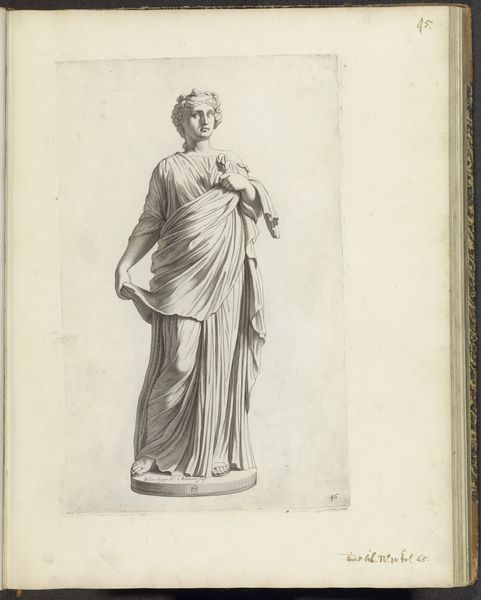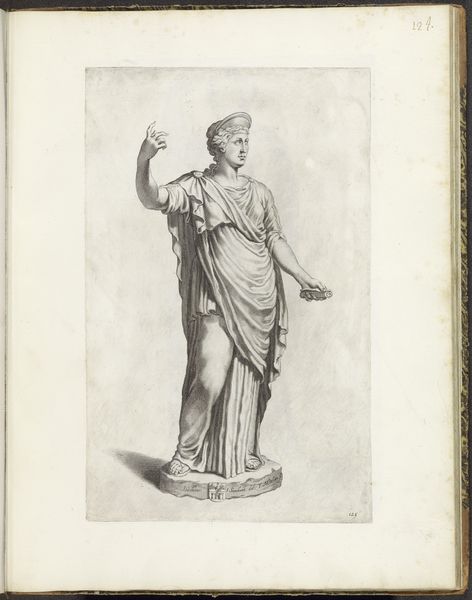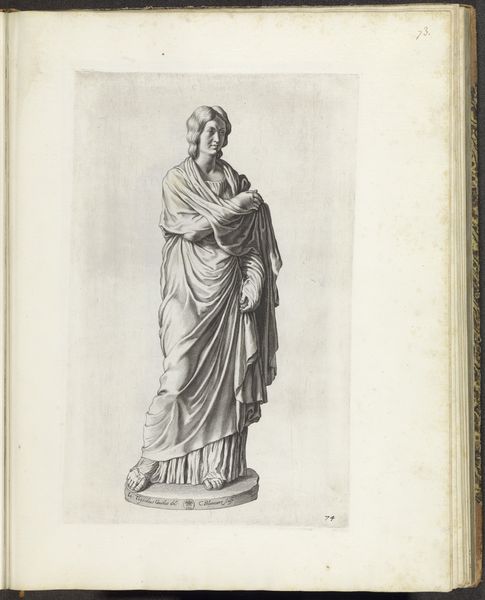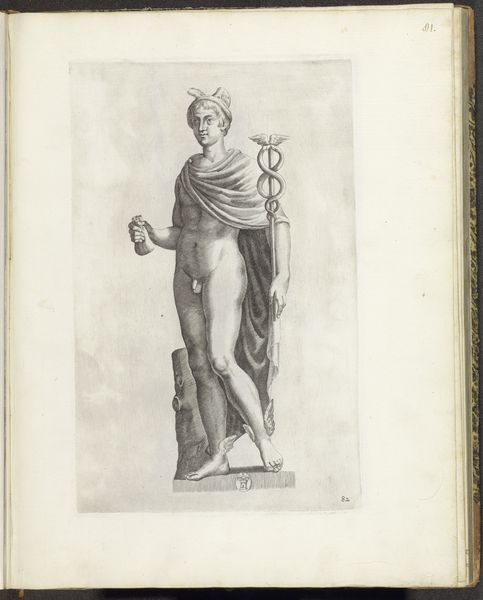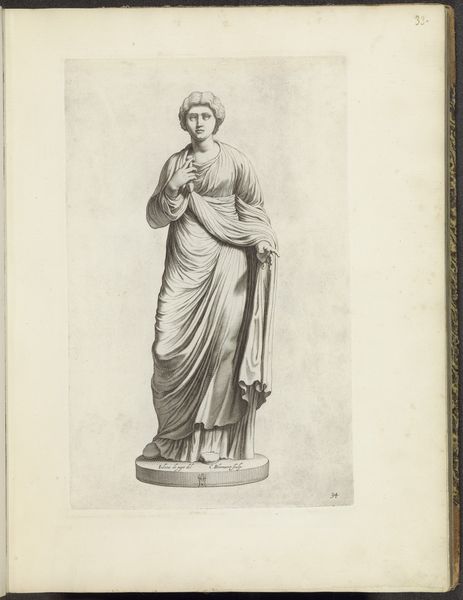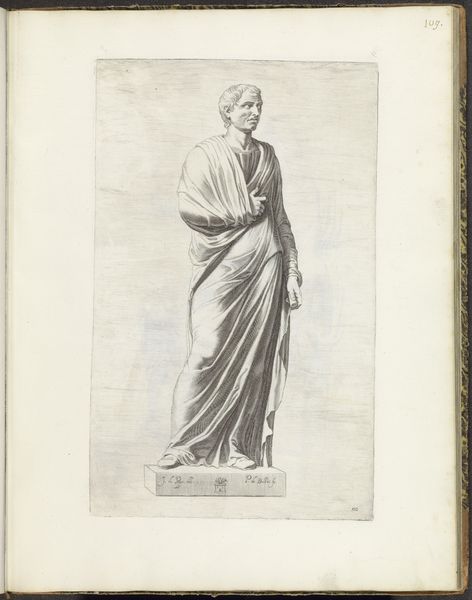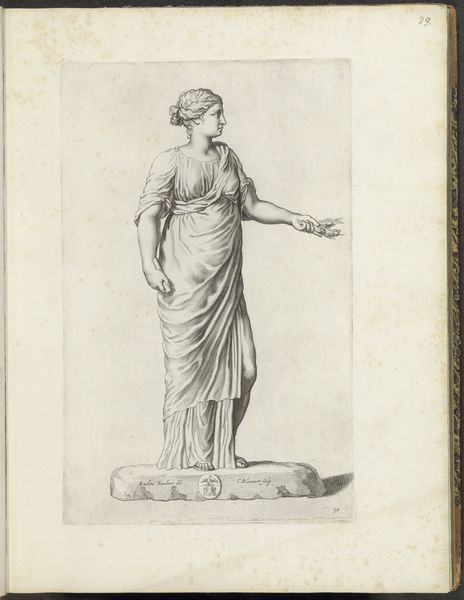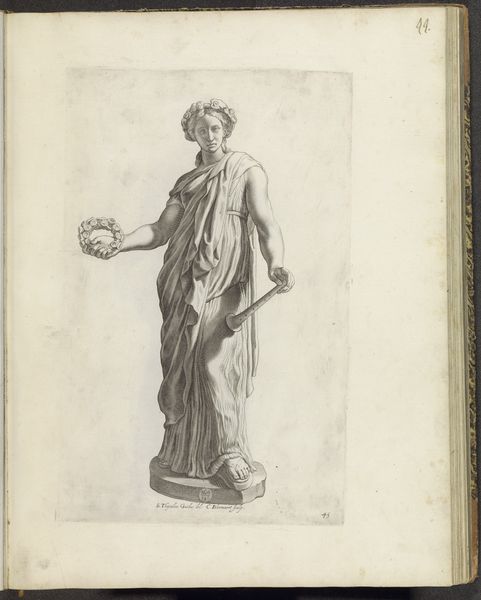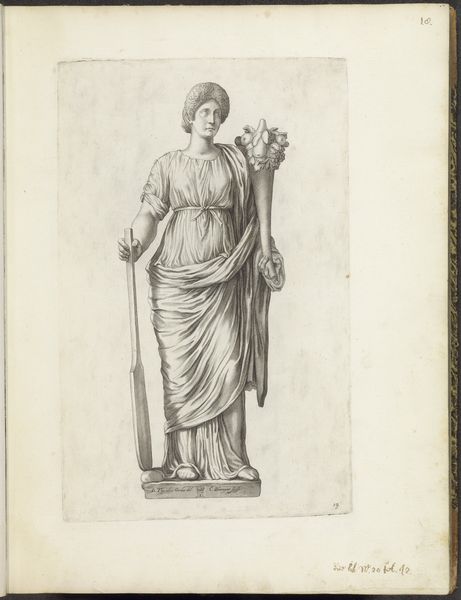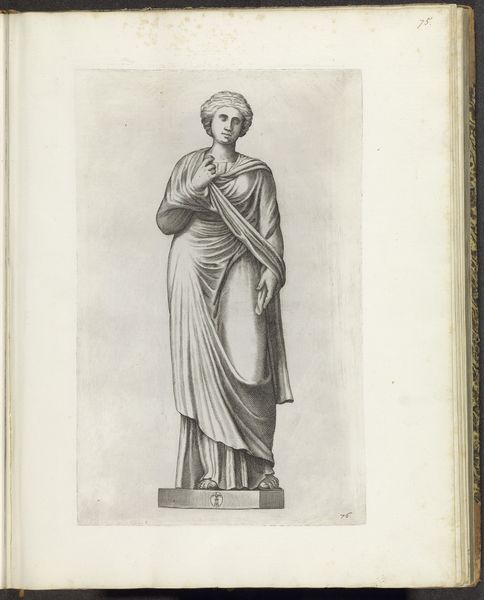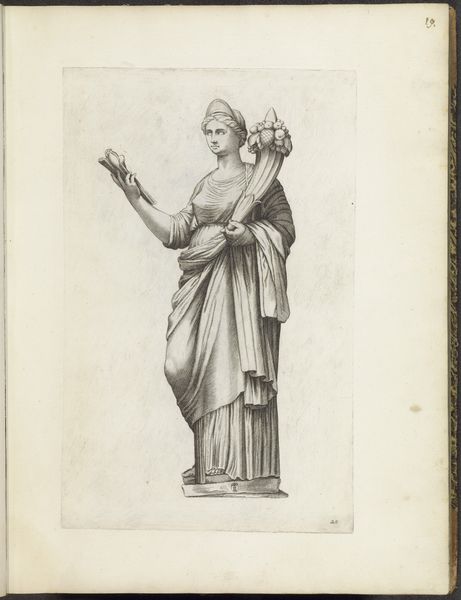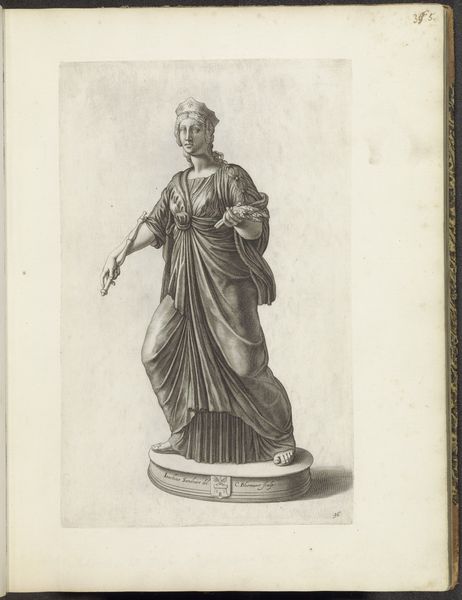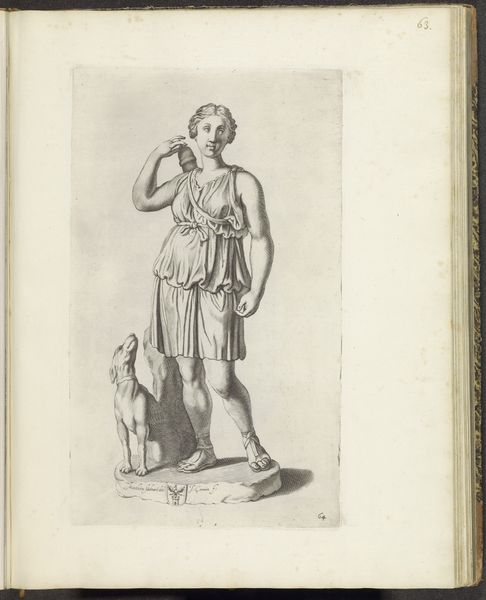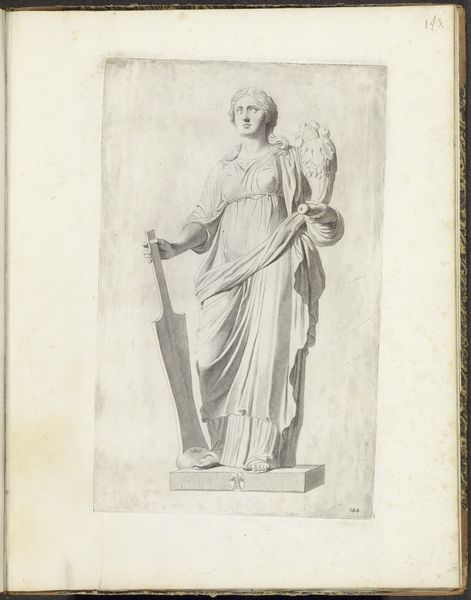
drawing, print, marble, engraving
#
portrait
#
drawing
# print
#
classical-realism
#
figuration
#
11_renaissance
#
history-painting
#
academic-art
#
marble
#
engraving
#
realism
Dimensions: height 368 mm, width 233 mm
Copyright: Rijks Museum: Open Domain
Luca Ciamberlano created this print of Flora sometime between 1599 and 1641. The delicate lines of the engraving give shape to the Roman goddess of flowers and spring. Notice how Ciamberlano uses line to define form and texture. The drapery folds create a complex interplay of light and shadow, lending the figure a sculptural quality. The lines are not merely descriptive; they construct the essence of the form, directing our gaze and shaping our understanding. The linear precision also invites us to consider the work within a historical and intellectual context. During this period, the revival of classical forms was not just an aesthetic preference, but a philosophical statement about order, reason, and the ideal. The print’s clear, rational lines embody these values, reflecting a broader cultural movement toward systematizing knowledge and experience. The composition invites endless interpretation as the lines and forms allow us to decode the underlying principles that continue to resonate today.
Comments
No comments
Be the first to comment and join the conversation on the ultimate creative platform.
